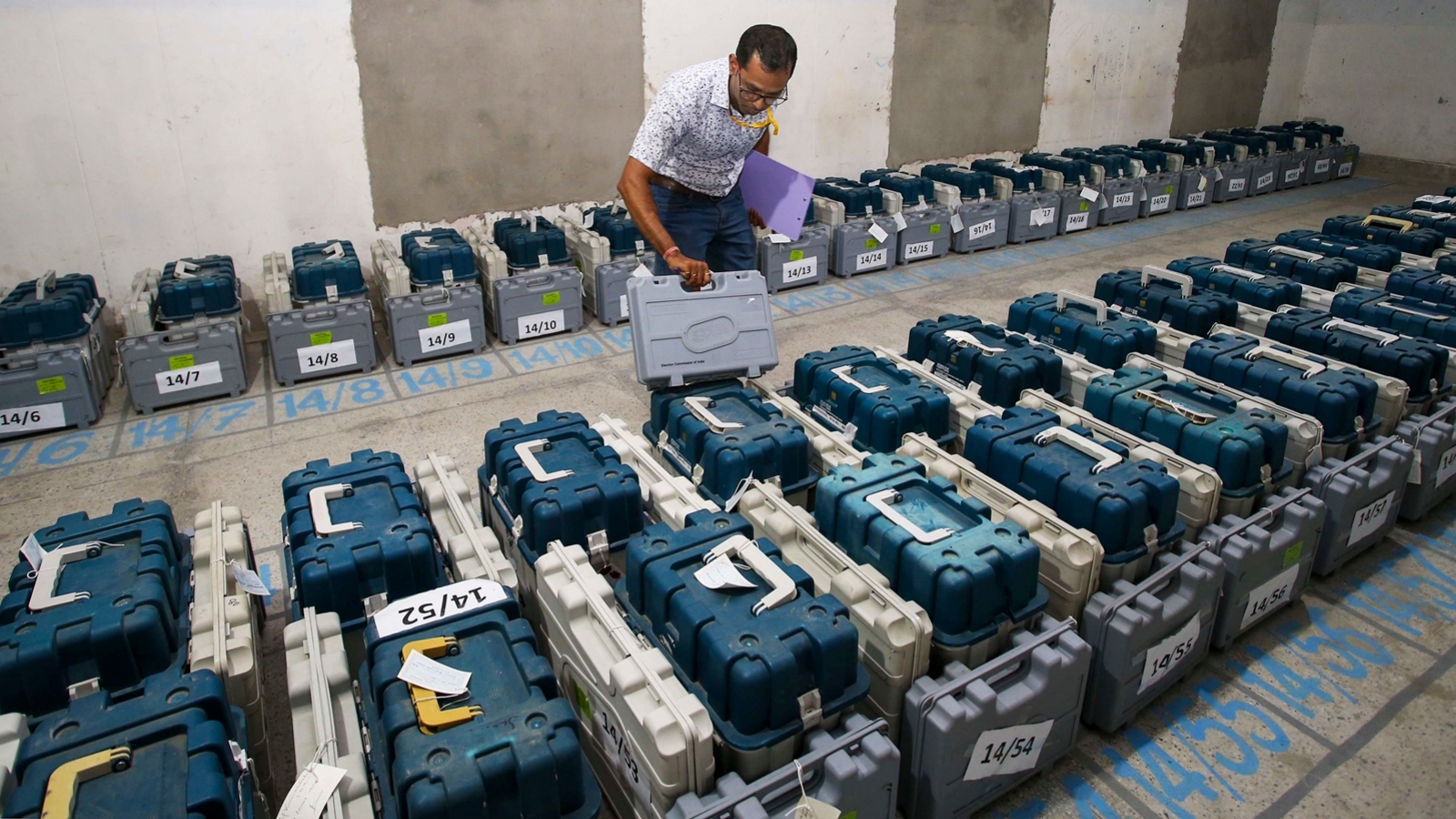Calling it a “rap on the knuckles” would be too mild. What the Election Commission of India (ECI) did to the Indian National Congress, for its senseless allegations and conspiracy theories, can be described as “hauling over the coals”, an idiom referring to the medieval punishment of dragging heretics over red-hot coals. The Commission’s response to the allegations levelled by Congress president, Mallikarjun Kharge, regarding the battery charging levels of EVMs in some constituencies in Haryana, was not only unusually long — running into nine pages — but also “in your face”.
Describing all the complaints as “too general”, “baseless” and “false narratives without any evidence whatsoever”, the Commission noted that they look “as if candidates filed these under some ‘common’ direction’.”
“Your communication placed in public domain in the middle of the ongoing election process” is “highly undesirable and one that appears designed to create confusion/misdirection/impediment to the conduct of smooth, free and fair elections,” the ECI wrote, lambasting Congress over its complaints of slow counting and reporting of results. “Unheard of in the rich democratic heritage of the country”, “far from a legitimate part of free speech and expression”, “frivolous and unfounded”, “disconcerting when it emanates from a reputed National Political Party” — these were some other strong words that the Commission used to reprimand Congress. In the end, it “urged” Congress to “take firm and concrete steps”, behoving the party’s “long and illustrious standing”, to “amend their aforestated approach”.
The only reason to quote extensively from the ECI’s unprecedentedly stern response is to highlight the unacceptably low levels to which the grand old party is descending in its blind hatred of the Narendra Modi government. Instead of looking inwards to account for its electoral failures, the Congress leadership has been trying to discredit the electoral system. The frivolous nature of the complaints can be gauged from the fact that just before the Lok Sabha elections, Congress complained that the ECI had “deployed EVMs which were previously deployed for elections in South Africa”. “Various sources informed the party that these EVMs have been received directly back from South Africa without going through the process of re-validation and re-verification,” it claimed. The reality is that no EVMs were ever sent to South Africa nor were EVMs ever imported from any other country. A senior Congress leader had made another similarly startling accusation two days before the counting of votes in the general elections, alleging that the Union Home Minister called up 150 district magistrates or collectors to put pressure on them. When the Commission sought details from the party, they were never provided.
Even the party’s complaints about EVMs in the Haryana elections were so ridiculous that the Commission had to explain in technical detail that the display of battery charging levels has nothing to do with the votes cast. It was repeatedly affirmed, not just by the ECI, but even by the courts in more than 40 different cases, that EVMs are tamper-proof. In fact, the batteries are used only to avoid connecting the machines to any power source so that each one remains an independent unit. There are no ports in EVMs to connect to any external sources. Moreover, there is no sequencing of the machines, and they are deployed in a random manner at the time of the elections, making it impossible to tamper with any specific machine or a set of them.
Not that the Congress leadership would be unaware of all this. Usage of EVMs began in 1982 during a by-election in Kerala. On a larger experimental basis, they were used in 16 assembly segments in Madhya Pradesh, Rajasthan and Delhi in November 1998. They were finally deployed fully in the general elections in 2004. Interestingly, it was Congress that won in all these elections. If there was any chance of tampering with the machines, it was during those initial stages when the technology was just evolving. But the BJP, as a responsible party, never blamed the EVMs for any of its electoral defeats.
The problem with Congress is its preoccupation with protecting its leadership from being blamed for electoral failures. In doing so, it doesn’t mind casting doubt on the country’s electoral process itself. As pointed out by BJP spokespersons, Congress had no problems with EVMs when the party or its allies won elections in Delhi, Punjab, Himachal Pradesh, Telangana, Karnataka, West Bengal, Tamil Nadu, and even in Jammu and Kashmir where the elections were held at the same time as Haryana. But where it lost, it blamed EVMs and the ECI.
Cynical Westerners often circulate a joke about China and democracy. A Chinese citizen walks up to Xi Jinping and demands that democracy be introduced in the country. Xi asks him which democracy? The one like in the US, where the candidate securing highest votes may not become the president, the one in UK, where the guy in the opposition secures almost same number of votes but becomes the ruling party, or the one in France, where the party with the highest vote share is made to sit in the opposition because the other two ganged up against it? Democracies may not be perfect. But Indian democracy has matured over decades to remove many such flaws. That’s why the joke doesn’t include India, although it is the world’s largest democracy.
For the Congress Party, it is instructive to read the citizen’s response to Xi, pointing to the real lesson of democracy. Irrespective of the flaws that Xi found in those democracies, the man says that he can still vote to change those leaders after five years.
The writer, president, India Foundation, is with the BJP. Views are personal



